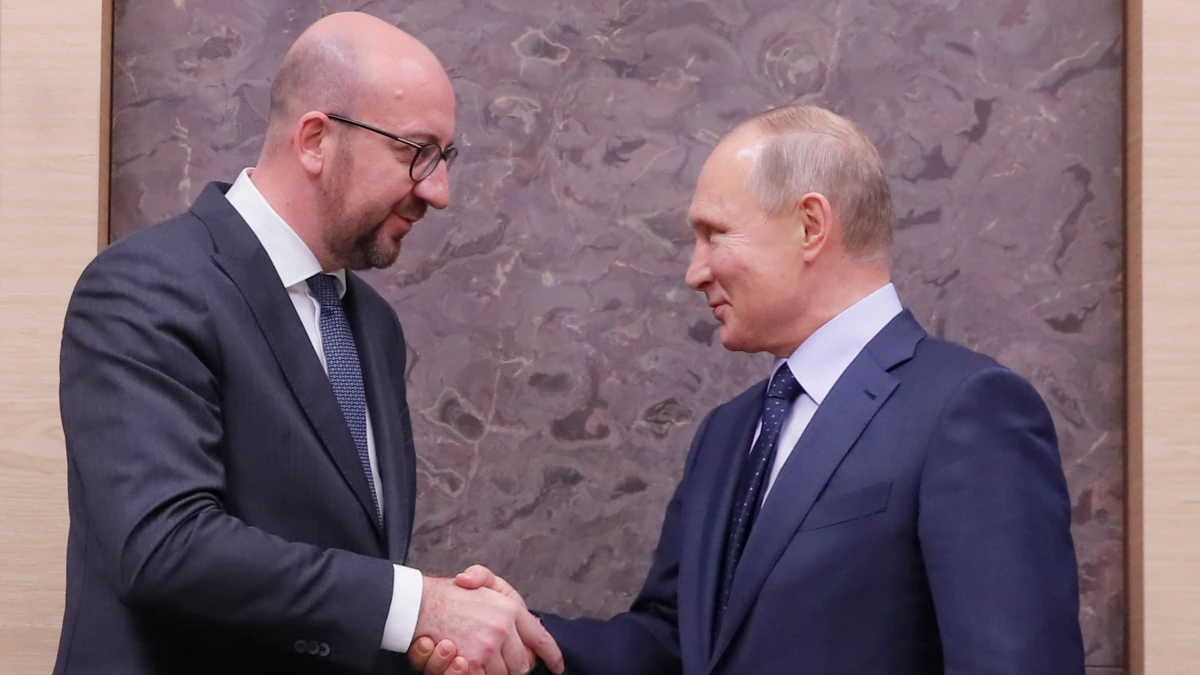European Council President Charles Michel has spoken by telephone with Russian President Vladimir Putin, stressing that relations between the bloc and Russia are “at a low” and that “this situation or its further deterioration is in neither side’s interest.”
The European Union statement on the June 7 call said Michel informed Putin that the European Council had discussed Russia in May and had “condemned the illegal, provocative, and disruptive Russian activities against the EU, its member states, and others.”
In a post on Twitter, Michel said relations could only improve “if Russia stops disruptive behavior.”
A Kremlin statement the same day said that Putin also said relations “cannot be considered satisfactory.”
Relations have been in a tailspin for many years now, particularly since Moscow’s 2014 seizure of Ukraine’s Crimea region and Russia’s military, political, and economic support for separatist formations in parts of eastern Ukraine that are waging a war against Kyiv.
Tensions have also been exacerbated by the 2014 downing of a commercial airliner over eastern Ukraine that the EU believes was carried out by separatists using advanced weaponry provided by Russia, as well as the 2018 attempted nerve-agent poisoning of a former Russian intelligence officer in the United Kingdom that the EU believes was a carried out by Russian intelligence agents.
Earlier this year, EU member the Czech Republic accused Russian intelligence agents of carrying out explosions at a weapons depot in the eastern part of the country in 2014.
Russia has denied involvement in all these incidents.
An EU statement on the call said the leaders discussed the situation in Belarus, with Michel condemning the forced landing of a Ryanair commercial flight in Minsk last month and the arrest of an opposition journalist who was on board.
According to the Kremlin statement, Putin said EU sanctions against Belarus over the incident were “counterproductive.”
Michel urged Putin to push Belarusian leader Alyaksandr Lukashenka to “release political prisoners, stop repressions and violence, and engage in inclusive national dialogue.”
During the call, Michel also reiterated the EU’s “unwavering support” for Ukraine’s “independence, sovereignty, and territorial integrity.” The Russian statement described the conflict in Ukraine as “an internal crisis.”
The two leaders also discussed the coronavirus pandemic and tensions between Armenia and Azerbaijan.


















